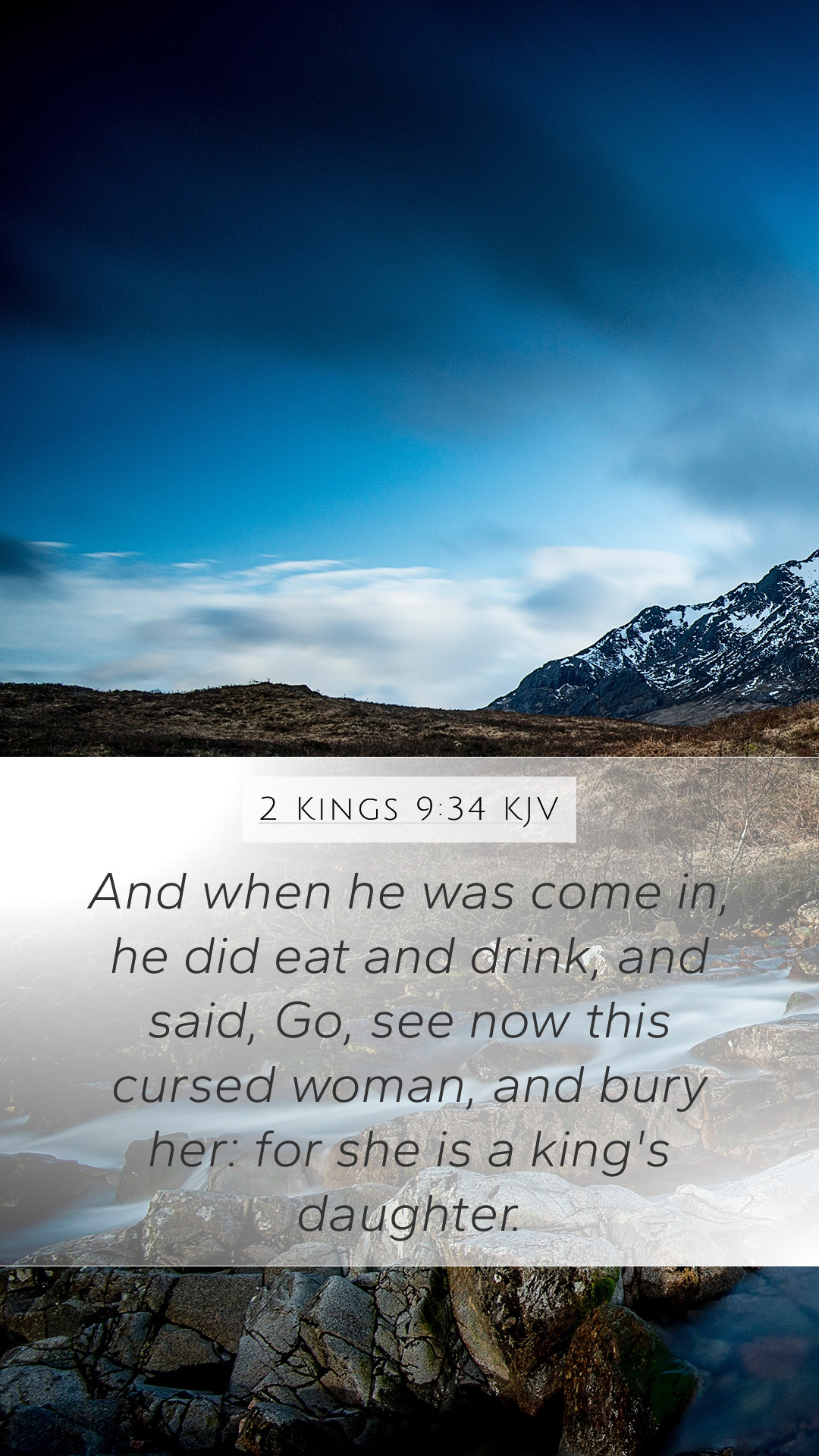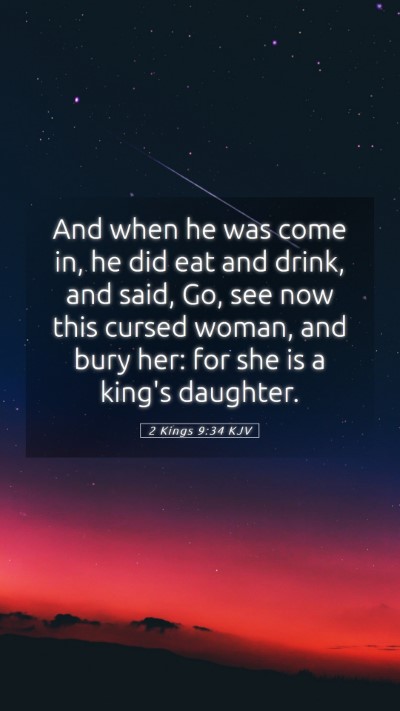Understanding 2 Kings 9:34
This verse presents a significant moment in biblical history. It describes the violent actions of Jehu, who has just been anointed as king of Israel and is tasked with eliminating the house of Ahab as retribution for their idolatry and wickedness. This analysis combines insights from various public domain commentaries to provide a deeper understanding of this scripture.
Verse Context
2 Kings 9:34 states: "And when he was come in, he did eat and drink, and said, Go, see now this cursed woman, and bury her: for she is a king's daughter." This verse occurs amidst the account of Jehu's rise to power, where God has instructed him to end the legacy of Ahab, a king notorious for leading Israel into sin.
Historical Background
The historical context is crucial for understanding this passage. Ahab's rule was marked by the worship of Baal, which provoked God's anger. Jehu's anointing by the prophet Elisha was a pivotal moment, symbolizing God's judgment against Ahab's household.
Commentary Insights
- Matthew Henry's Commentary: Henry emphasizes Jehu's boldness and the gravity of his assignment. There is a stark contrast between his eating and drinking, typically associated with celebration, and the morbid task he must undertake to fulfill God's will. This reflects the duality of divine justice.
- Albert Barnes' Notes: Barnes highlights the significance of Jezebel's burial. He points out that her being a "king's daughter" elevates her status, yet her actions aligned with idolatry and immorality lead to her demise. This serves as a warning about the consequences of abandoning God’s commandments.
- Adam Clarke's Commentary: Clarke adds to the narrative by discussing Jezebel's character and influence. He elaborates on her role in promoting Baal worship in Israel and her persecution of God’s prophets. Clarke suggests that Jehu’s contempt for her reflects the righteous anger against falsehood and corruption.
Key Themes and Lessons
The exploration of 2 Kings 9:34 reveals several key themes:
- Divine Judgment: The verse illustrates God’s unwavering stance on sin and idolatry. Jehu’s actions are a fulfillment of prophecy and demonstrate the serious consequences of turning away from God.
- The Cost of Evil: Jezebel’s life serves as a cautionary tale about the ultimate cost of pursuing wickedness. Despite her royal lineage, her deeds led to her disgrace and violent end.
- Biblical Leadership: Jehu's character showcases a leader's responsibility to uphold divine standards. His decisive action reflects the gravity of spiritual leadership in the face of prevalent sin.
Application for Today
In applying this scripture to daily life, modern readers are called to reflect on their values and priorities. Just as Jehu was chosen to enact God’s will, believers today are challenged to live righteously and uphold God's commandments in their contexts.
Related Cross References
- 1 Kings 21:25–26 - Ahab's wickedness and influence.
- 2 Kings 9:7 - God's command to destroy the house of Ahab.
- Revelation 2:20 - Warning against following Jezebel’s teachings.
Conclusion
Through this analysis of 2 Kings 9:34, we gain insight into the themes of divine judgment, the cost of evil, and the responsibilities of leadership within a biblical context. The readiness of Jehu to undertake a grave task at God's command instills in us a sense of urgency in adhering to God’s word and principles in our own lives.


